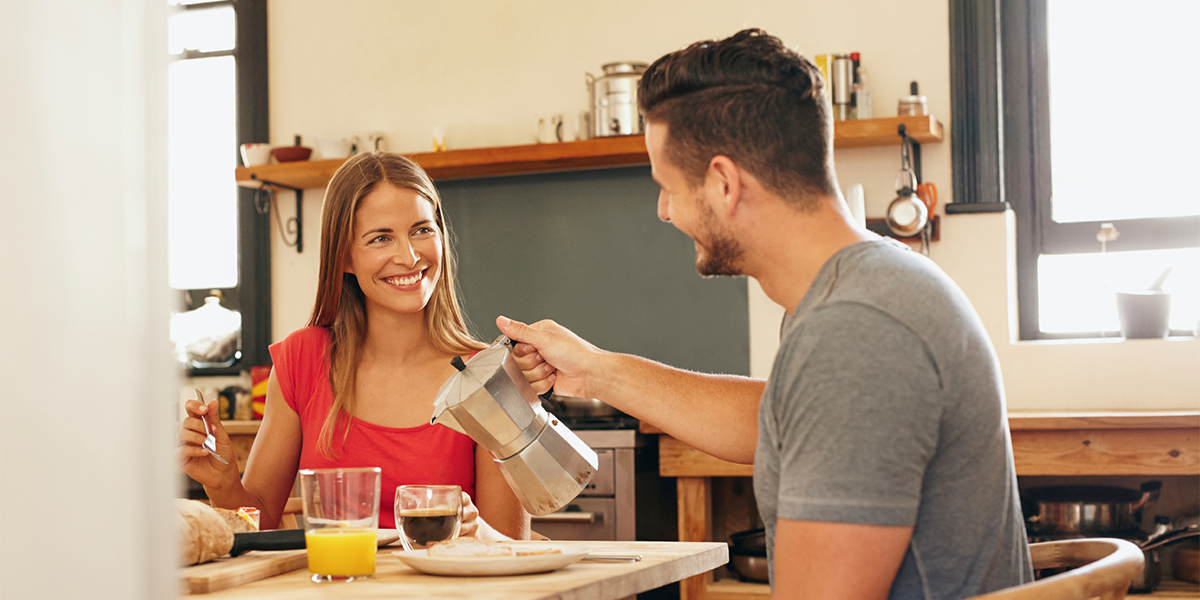For years here at Summer Tomato I’ve been telling you that Real Food is the key to better health and weight control.
Week after week I’ve encouraged you to eat a diverse range of vegetables, legumes, fish, and minimally processed meats, oils and grains.
Mountains of evidence tell us that eating these foods, while avoiding processed industrial foods, can dramatically cut your risk of heart disease, cancer, hypertension, diabetes, dementia, depression, arthritis, and obesity.
Without a doubt, the nutritional advantage of Real Food is powerful enough to add decades to your life.
Still there is a health benefit of food that trumps all the polyphenols and omega-3s you can sink your teeth into.
Throughout history mealtime has been at the center of human culture. At the table we share stories, build relationships and learn from each other’s mistakes, creating the bonds that define us, our friends and our families.
Trending: Navy SEAL Secrets for High Performance Under Pressure
In 2010, a landmark study was published in the journal PLOS Medicine that analyzed the results of 148 independent studies on the relationship between social connections and mortality.
Their shocking finding was that the quantity, depth and quality of social bonds predicted a 50% decreased risk of mortality, a number on par with quitting smoking and engaging in regular exercise.
While food is by no means the only way to build stronger relationships with friends, family and your community, it is certainly a natural and convenient place to focus.
Most of us already make the effort to eat three times per day and enjoy catching up with the people we care about. Using mealtime as an opportunity to share your daily triumphs and failures is a simple and fun way to develop one of your most essential home court habits.
Real Food in particular makes this possible. One of the unfortunate results of industrialized convenience foods is that they allow virtually everyone in your household to eat something different, at whatever hour suits the individual.
This means that “dinnertime” is less likely than ever to mean a shared meal with real conversations. When time, effort and care are put into preparing a meal from real ingredients, the amount of bonding that occurs while eating inevitably increases.
If eating alone or while watching TV or working at the computer is normal for you, the idea of a joyful meal with family or friends can sound quaintly idealistic. That’s natural. And I’ve been there.
Convenience is very alluring, and if you have a strong habit of NOT making food a priority it can seem impossibly time consuming and difficult. But keep in mind that this can be fun, and the difficulty decreases as you get more practice.
Trending: How to Make Menopause the Best Time of Your Life
One of the reasons Thanksgiving is such a popular holiday is that we get to eat delicious food cooked from scratch and celebrate the season with the people we love.
A few times in the past my family hasn’t had the time or ability to do all the cooking, so we’ve cut a few corners here and there by buying pre-made turkeys, stuffing and pies. It gets the job done, but it never feels as special.
When I met my husband and we started living under the same roof, one of the things I learned is that mealtime doesn’t need to be a big production in order to bring us together.
We are both incredibly busy, but we built a habit of cooking together at least a few nights a week, even if we just throw some chicken legs on the grill and whip up a quick salad (under 20 minutes from kitchen to table). Without a doubt, these are some of the most wonderful nights we’ve spent together.
That said, neither of us have the energy to cook and clean every single night, so a couple of times a week we’ll go out to a restaurant, order in, or grab something pre-made from our local Whole Foods.
What’s interesting is that while these evenings (especially those when we order in) definitely aren’t as endearing to us as the nights when we cook for ourselves, because we have the habit of eating together we are never tempted to eat separately at our computers (this was normal before we met). We rarely even have the TV on. Instead we prefer to play some soft music, dim the lights and focus on our food and each other.
Trending: Microsoft, Google, and Beyond: What Business at the Cutting-Edge of AI Looks Like
Our cooking habit helped define dinnertime as together-time for us, so that even when we don’t have the time or energy to make food from scratch we still get the benefit of spending that time sharing our daily thoughts and adventures.
If social connections are as important as the science suggests (there are good reasons to suspect that the health benefits are actually larger than the research currently shows), then sitting at the table and turning off the TV may be the greatest health benefit any of us receive from eating Real Food.
A version of this post originally appeared on Darya Rose’s website, Summer Tomato.






























